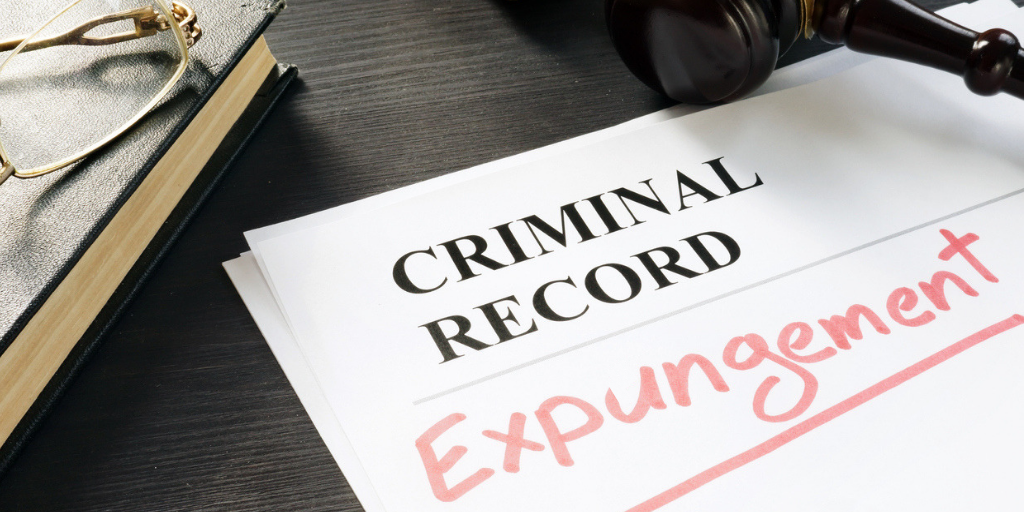

According to the SentencingProject.org, nearly one in three adults in the U.S.—or 70 million...

Historically, expungement means that by law, an employer is not allowed to ask about any charges, arrests or convictions that have been expunged from a candidate’s record. After the record is expunged, it is legally considered to no longer exist. This includes charges or cases that were dismissed, or where the employee or candidate was found not guilty. This did not include multiple charges for the same offense where only some of the charges were dropped.
In short, employers cannot use any information related to an expunged conviction against an employee or applicant, regardless of how that information was obtained. Records that are expunged keep an employer from using these conviction records to refuse to hire an applicant due to consideration.
The primary question around expungement of criminal convictions is whether or not a record that is self-reported by a candidate can be considered if it is expunged. Recent legislation from South Carolina says no and will go into effect December 28, 2018. There is potential risk in hiring a candidate who has self-reported or disclosed information about an expunged record and it is used as part of the hiring process. Specifically, the risk is discrimination claims made on these grounds, which is one of the reasons we are seeing more legislation like South Carolina’s happening.
The amendment to South Carolina law allows individuals to have certain criminal records expunged following a successful court petition. This means that, among other things, a prospective employee would not be required to disclose on an employment application criminal record information that has been expunged. Additionally, once the criminal history is expunged, employers will not be able to find evidence of the individual’s criminal history with a commercial background check.
The new law also provides an employer immunity from civil action for hiring a worker with an expunged criminal record. The employer will not be subject to negligent hiring claims based on the worker’s expunged convictions. The law also makes clear that employers may not use knowledge of any criminal history that has been expunged from a candidate’s record adversely against the applicant. Thus, employers should not ask candidates to disclose any expunged convictions on a job application or in a job interview.
Employers that conduct background screens will need to keep up as states expand the types of criminal records eligible for sealing or expungement. According to a recent SHRM article, Mayor Muriel Bowser of Washington, D.C., recently proposed to wipe clean the arrest records of people who were not later convicted. Her plan joins a string of recent efforts referred to as “second chance” or “clean slate” bills that would limit employers’ access to criminal records of arrests without convictions, minor misdemeanors and even low-level felonies, to improve ex-offenders’ job prospects. In a tight labor market, this could be good news for some employers. However, compliance when it comes to the hiring process may become more complicated.
Says SHRM: Most states allow for criminal records to be sealed or expunged, although laws vary by state. Some states do not permit expungement, or they allow expungement under very limited circumstances. Dealing with sealed or expunged records can be tricky for employers conducting background screens because of differences in state laws and the presence of records tagged for sealing or expungement online or in databases that are then scooped up in bulk by consumer reporting agencies. There have been a number of lawsuits filed against employers for making employment decisions based on sealed or expunged records.
One of the issues that can complicate the screening process is how each state treats expungement records and the method by which they are purged from databases. Any sealed information that comes to light should not be used in hiring decisions, otherwise the company may be held liable. Hiring managers must be trained on how to follow proper protocol and allow applicants to dispute inaccurate information before an adverse hiring decision is made. This will ensure that individuals can identify sealed records that may have accidentally come to light during the hiring process.
There have been a number of lawsuits filed against both employers and third-party reporting companies for using or providing sealed records. To protect against these types of lawsuits, your company and its human resource department should understand how expungement works, as well as the current legislation in each state. This underscores the importance of using a reliable third-party screening company that thoroughly understands and adheres to FCRA and FTC guidelines on hiring.
Finally, your HR team should know in which phase of the hiring process they are permitted to make a criminal history inquiry and what they have to tell the applicant about their intent to run such a check. Because the laws vary by state (and federal laws are subject to change), it’s important to partner with a reputable vendor whose job it is to stay on top of current legislation and can help educate your staff on the safeguards used to ensure compliance.
Cisive works with your HR team as a company partner, not only running the search for your background screens, but cross-referencing state and county records to ensure any updates to local criminal records are accounted for with regards to convictions that have been sealed or expunged. Verification of the results is key to giving your company another layer of protection from discrimination lawsuits based on background check results.

According to the SentencingProject.org, nearly one in three adults in the U.S.—or 70 million...

Employers that use background screening methods to vet potential employees are likely aware of...

An employer’s ability to quickly onboard new employees can be beneficial for meeting customer...